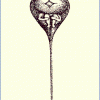guys i have been looking into IGF-1 as nootropic. i have read it can help a lot with that. specifically mentions neurogenesis and also from wiki it mentions it also helps with;
"IGF-1 then stimulates systemic body growth, and has growth-promoting effects on almost every cell in the body, especially skeletal muscle, cartilage, bone, liver, kidney, nerves, skin, hematopoietic cell, and lungs. In addition to the insulin-like effects, IGF-1 can also regulate cell growth and development, especially in nerve cells, as well as cellular DNA synthesis"
wow thats crazy with how much it can help ! dont you think thats amazing ? i was thinking, either taking it by itself which seems legal, or perhaps get deer antler which claims to have IGF-1 for all those benefits ? what do you guys think, good idea ? i just wish someone helps me out here with if this is such a good. because i also read cancer occurs exactly because of IGF-1 ! so thats pretty fucked up. so many benefits can be scraficed for cancer :/
anyone ever took anything related like deer antler and noticed a difference ? please help me out with this !


















































